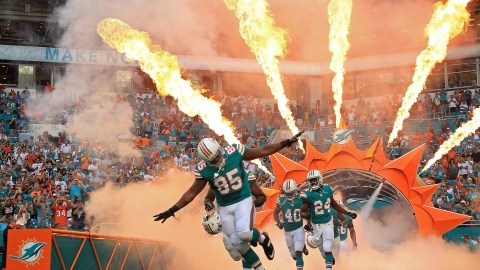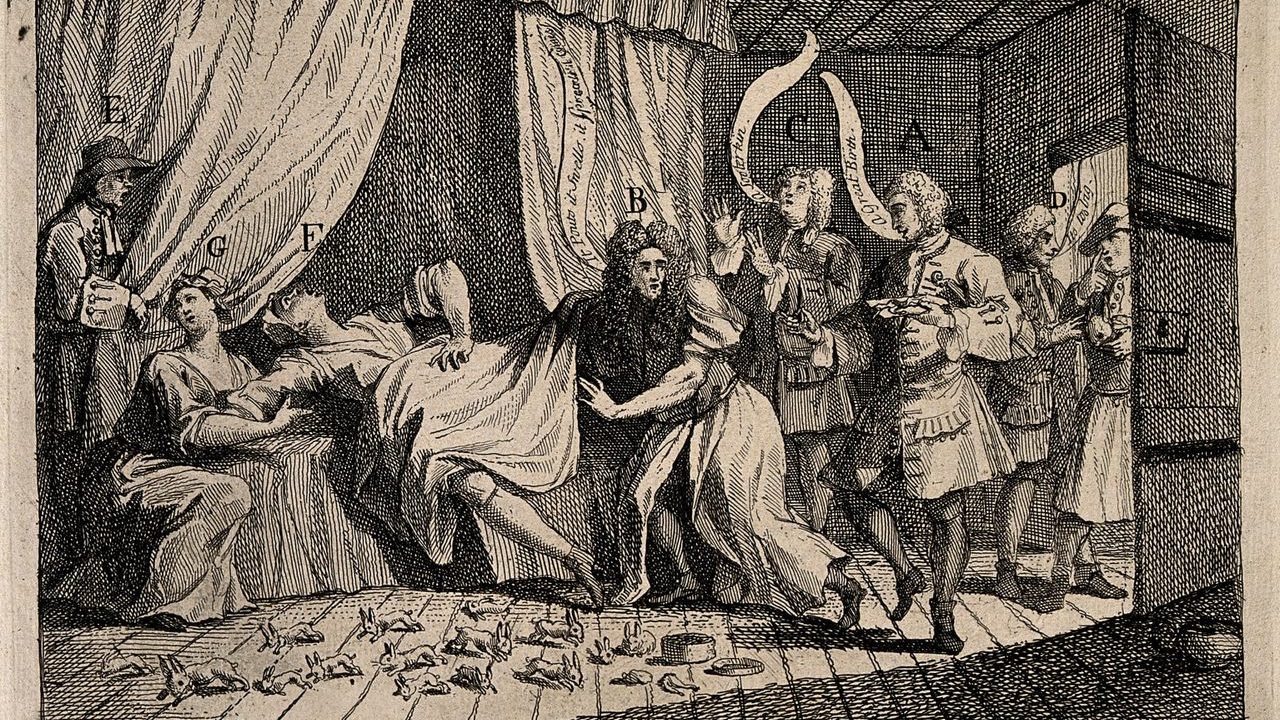What keeps elite athletes motivated to win? It’s not just money.

Photo credit: Mike Ehrmann / Getty Images
- Revenues for teams in the MLB, the NBA, and the NHL are boosted by wins — but not those in the NFL.
- Your favorite sports team might not be experiencing a "real" championship drought, at least compared to others.
- The average overall length of a title drought in the NFL is 61.5 years
And yet: the Yankees are making money. Even though they haven’t won a title in a decade, their revenue has risen steadily since 2001. Why? A team doesn’t have to rely on a championship in order to make money. In a 2016 paper written by academic John Charles Bradbury, two points were made: winning does, indeed, help “sell” the brand — regardless of whether they score championships. It also helps if a team is based in a strong market.
This is the case for teams in the MLB, the NBA, and the NHL, but not as much for those in the NFL.
Big teams and title ‘droughts’
Before we explain why strong relationships between teammates and athletes’ families are so important, in terms of keeping players motivated to win, it’s worth taking into account the average length of a title drought.
In the NBA — if we’re to count 29 of 30 teams — the average length of a title drought is 32.7 years. The average length of a title drought in MLB — if, again, we’re to count 29 of 30 teams — is 24.34 years. The average overall length of a title drought in the NFL if we’re to count all 32 teams is 61.5 years.
Consider other well-known teams beyond the Yankees: save 2011, the Chicago Bulls — who are on the verge of hitting the historical average — have seen their revenues steadily rise since 2001. The Los Angeles Lakers — who remain just ahead of the historical average curve — have shakily and then rather quickly — seen their revenue rise over the same time period. The Dallas Cowboys — the most valuable sports franchise in the world — aren’t in the top tier of perpetually successful teams (they last won the Super Bowl in 1996), but they’re nowhere near the historical average either: their revenue has also followed an upward (and much steadier) trajectory.
In terms of game attendance across sports, and its impact on revenues, much of it depends on amenities as it does the performance of the players. Bradbury, notes:
“Previous estimates of the impact of stadium quality on fan attendance have found a novelty or ‘honeymoon’ effect from new stadiums that boosts revenue for between five and ten years, because fans are attracted to updated amenities and a new experience.” The exception to this rule, it seems, are NFL games.

New York Yankees Revenue: 2001–2017.
Statista
Why is the NFL such an outlier in some of the data we’ve observed? Bradbury again:
“Income per capita is positively associated with more revenue in the NFL — a one-standard-deviation increase in income was associated with a $6.6 million increase in revenue — but not for any other league.”
The NFL is also a syndicate that shares revenues amongst teams and gleans its profits from a centrally dispersed television broadcast.
What does this have to do with winning? What does this have to do with the fact that the average length of a title drought in the NFL is 61.5 years? As Bradbury notes:
“In the NFL, winning does not appear to provide any marginal financial gains and thus owners have no financial incentive to improve team quality.”
Potential solutions
So what improves team quality? Does a large salary incentivize players to win? It’s worth noting that a large salary is one of the most noticeably clear benefits to be gained from working in a monopsonic system, and that — until 1978 and the emergence of Dave Parker — the idea of rich athletes was something of a novel one.
However, money doesn’t always buy success either; think of the success of Leicester City F.C. or the emergence of moneyball in Oakland. Think of the fact that — in order to give a team in the NFL an 80 percent win-rate — you’d have to outspend the average league salary by 174 percent.
One argument, from Christopher Maier of the University of Bayreuth, and others that cut against the grain, notes that the “integration of family and private problem support… show strong positive effects on athletes’ job satisfaction.” Indeed, the finding, which correlates with athletes’ motivation to win, echoes some of the comments Paul George made when he spoke about why he decided to re-sign with the Oklahoma City Thunder.
Thunder Media Day: Paul George
On Media Day for the current 2018–2019 season, George noted the quality of the relationships he’d formed. “Almost felt like I’d been here for a while,” he said.
Paul George is currently playing the best basketball of his life. And that’s why you should invest in the sport (or any sport) and go see a game: he’s an elite athlete, playing for a that team he’s integrated in. And that matters. When the NFL brought in replacement players — “young men in limbo” — during the 1987 strike, attendance to games dropped.
So we have Paul George on fire. And even though the Thunder haven’t won a championship since 1979, revenues are going up.





